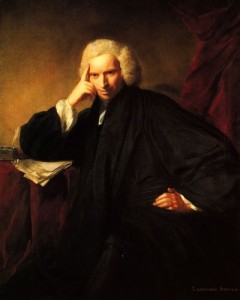httpv://www.youtube.com/watch?v=uUn57cq7Lms
Donald Sutherland reads an excerpt from Who Has Seen the Wind?, which nicely illustrates Frye’s observation below
Today is W.O. Mitchell‘s birthday (1914-1998).
From the “Conclusion to the First Edition of Literary History of Canada“:
The sense of probing into the distance, of fixing the eyes on the skyline, is something that Canadian sensibility has inherited from the voyageurs. It comes into Canadian painting a good deal, in Thomson whose focus is often furthest back in the picture, where a river or a gorge in the hills twists elusively out of sight, in Emily Carr whose vision is always, in the title of a compatriot’s book of poems, “deeper into the forest.” Even in the Maritimes, where the feeling of linear distance is less urgent, Roberts complements the Tantramar marshes in the same way, the refrain of “miles and miles” having clearly some incantatory power for him. It would be interesting to know how many Canadian novels associate nobility of character with a faraway look, or base their perorations on a long-range perspective. This might only be a cliche, except that it is often found in sharply observed and distinctively written books. Here, as a random example, is the last sentence of W.O. Mitchell’s Who Has Seen the Wind: “The wind turns in silent frenzy upon itself, whirling into a smoking funnel, breathing up top soil and tumbleweed skeletons to carry them on its spinning way over the prairie, out and out to the far line of the sky.” (CW 12, 348)

